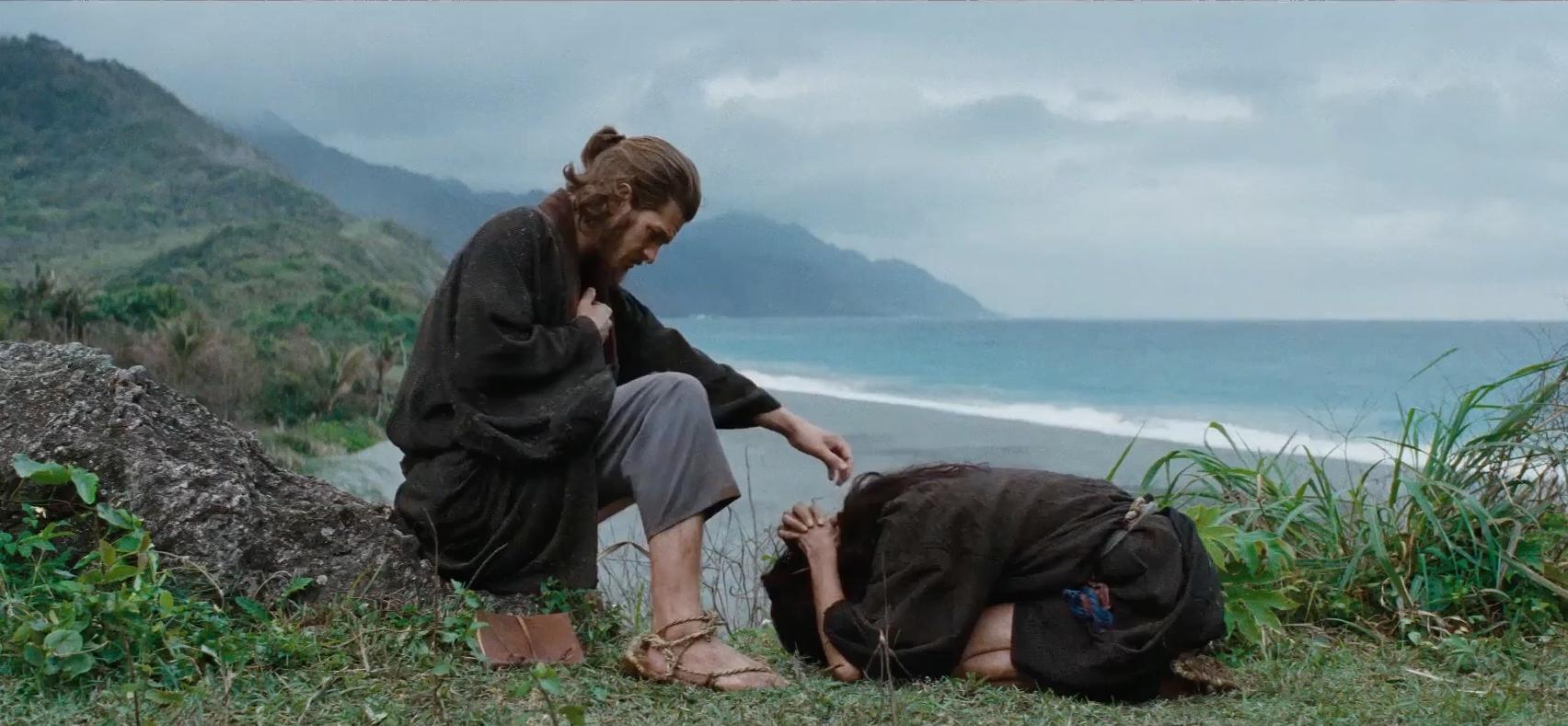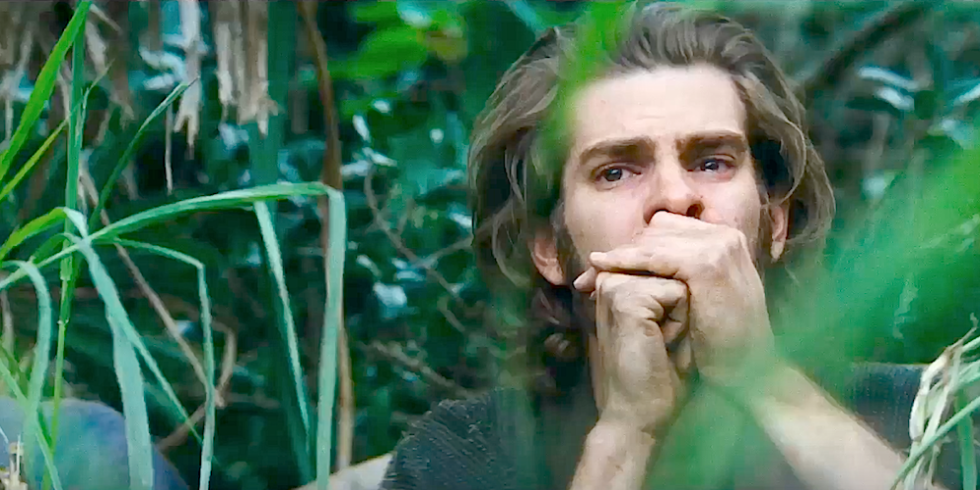“Silence” (Martin Scorsese’s long gestating
historical/religious drama) is a long and brutal watch. Those who are
accustomed to the kinetic exuberance and black comedy of Scorsese flicks like
“The Wolf of Wall Street” and “Goodfellas” may be put off by this film’s overly
deliberate and dour nature. But for those who are patient, “Silence” is a thought-provoking,
deeply rewarding experience.
The setting is seventeenth century Japan. The government,
known as the Tokugawa Shogunate, has outlawed Christianity and adherents are
persecuted. Thousands have been killed and thousands more have undergone (and
are still undergoing) ruthless torture. The only way to be set free is to
apostatize, i.e. publically renounce your faith by stepping on a plaque with a
mold of The Christ. The central plot concerns two Jesuit Priests, Rodrigues
(Andrew Garfield) and Garrape (Adam Driver) who go to Japan looking for their
mentor Ferreira (Liam Neeson), who has supposedly apostatized. While there they
become immersed in the suffering.
Scorsese doesn’t shy away from depicting the gruesome
details of this mass persecution; people are crucified while boiling hot
springs water is slowly sprinkled on them, others are burned or drowned, not to
mention all the psychological torment. Japan itself is grey and dirty—at times
resembling a dystopian landscape. A thick, ominous cloak of fog overtakes the
characters time and time again. Scorsese creates an atmosphere of excruciating
dread and suffering. The film is often claustrophobic and overbearing, and with
a running time clocking in at two hours and forty-one minutes you’ll feel
emotionally drained by the end.
Yet, as grueling as “Silence” can be to watch, I couldn’t
look away. The picture is a dense,
fascinating exploration of the endurance of personal faith. How strong is your
faith? Is your belief in god (specifically the Christian God) worth suffering
for? Is it worth watching those you love and care about suffer? If your god exists
why does he let this seemingly endless suffering happen? If it’s part of God’s
plan (as some religious people like to say) that seems like a lousy plan.
Should you live and practice your religion in secrecy and shame or die for your
belief? “Silence” is loaded with intriguing theological questions/dilemmas like
these and doesn’t provide easy answers.
Though a more intriguing question “Silence” poses and one
that becomes central to the entire film is: what’s the breaking point for a
priest? For a person that has dedicated their entire life to god and Christianity,
how much suffering is too much?
Gradually, “Silence” emerges as an absorbing psychological
character study of Rodrigues and his religious endurance. Garfield is remarkable--
giving an understated, physical performance that gains more power and nuance as
the film goes on. At the beginning, Rodrigues is stern and composed— his faith
concrete and ready to seemingly take on anything, even a government that
opposes everything he stands for. However, as he spends more and more time in
Japan, knee deep in suffering, he becomes increasingly unhinged--physically and
mentally deteriorating before our eyes, the concrete crumbling. Scorsese and
Garfield provide intimate, sometimes painful glimpse inside Rodrigues’ psyche
as he interrogates his own faith that’s endlessly fascinating.
Along with this emphasis on endurance and faith, the film
thoughtfully examines the nature/purpose of missionary work. The film suggests
that perhaps missionary work is partly motivated by the desire for personal
glory (on the part of the priests and missionaries). It’s not only about
spreading the word of God but also being in a position of influence and
superiority. When Rodrigues arrives in Japan he’s immediately sought out by
Japanese Christians living underground, becoming a source of spiritual
guidance, a beacon of hope in this otherwise dark time… a savior. This sense of
power and purpose is intoxicating and slowly gets the better of Rodrigues. At a
certain point you become unsure as to whether Rodrigues genuinely cares about
these poor, devoted people or if he’s become absorbed in his own fantasy of a “Christian
Japan” and messianic complex.
There’s plenty more I could talk about, too much for a
single review, so I think I’ll leave it at that. “Silence” isn’t without
flaws—it can feel a little too exposition heavy at times especially in the
first hour, slowing down an already slow movie. The drawn out torture sequences
can feel repetitive and I wish Scorsese had cut down on the voiceover
narration. Admittedly, Scorsese does voiceover better than most (see
“Goodfellas” or “Casino”) but there are times during “Silence” where I wish he
would just let the images speak for themselves.
Even so, “Silence” is a challenging, visceral, multilayered study
of faith and missionary service. It’s not easy to watch. It made me
uncomfortable and tested my patience. But as soon as I walked out of the theater
I wanted to see it again. Scorsese gives you so much to munch on and digest. I
have a feeling this will only get better with more viewings.
A-



No comments:
Post a Comment